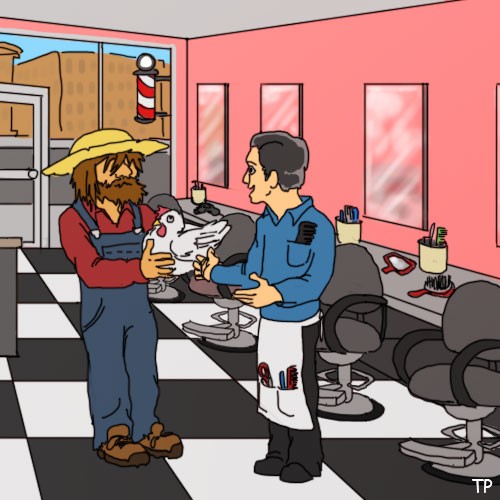
Barter: No taxation on direct barter. When there is a direct exchange between interested parties for
services and/or products, that is direct bartering. When "barter dollars" or another exchange currency is used in a barter deal, it isn't a direct barter but means a barter exchange is being used to facilitate indirect barter deals. The whole point of doing direct barter is to not need to use money (be it government's coins and paper dollars or a barter exchange's "dollars") to make a transaction happen. But government demanding its "cut" of the deal in taxes forces a portion of each barter deal to be in cash and thus greatly diminishes the economic benefits of doing barter. While the VAST majority of people simply ignore this taxing demand by government and barter deals are extremely difficult to police and in many cases impossible to do so, the governmental taxing demand hampers businesses from openly engaging in large-scale barter deals and diminishes their economic benefit when they are done in the open. These large-scale barter deals almost always are about lowering their operational costs which thus helps them to lower the prices they charge to cash-paying customers and/or enables them to remain profitable, thus in business.
Future Challenges:
1) Help spearhead the state-wide petition drive within her/his state and if her/his state allows people to sign petitions online, to have a way for people to sign the petition at the show's website. If her/his state doesn't allow online petitions, the show's website has a way for people to request referendum workers come to their homes so they can collect the person's signature and then the host/ess encourages her/his listeners to go to the show's website and make the request.
2) By way of Future Challenge #1, the host/ess is able to collect at least the minimum number of signatures needed to get the referendum on the state's ballot.
3) By way of Future Challenge #1, the host/ess is able to collect more than enough signatures that if they were votes in the next state election, the referendum would win.
4) By way of Future Challenge #1, the host/ess is able to collect more than enough signatures that if they were votes in the next state election, the referendum would win in a landslide (winning by at least a 2-to-1 margin).
